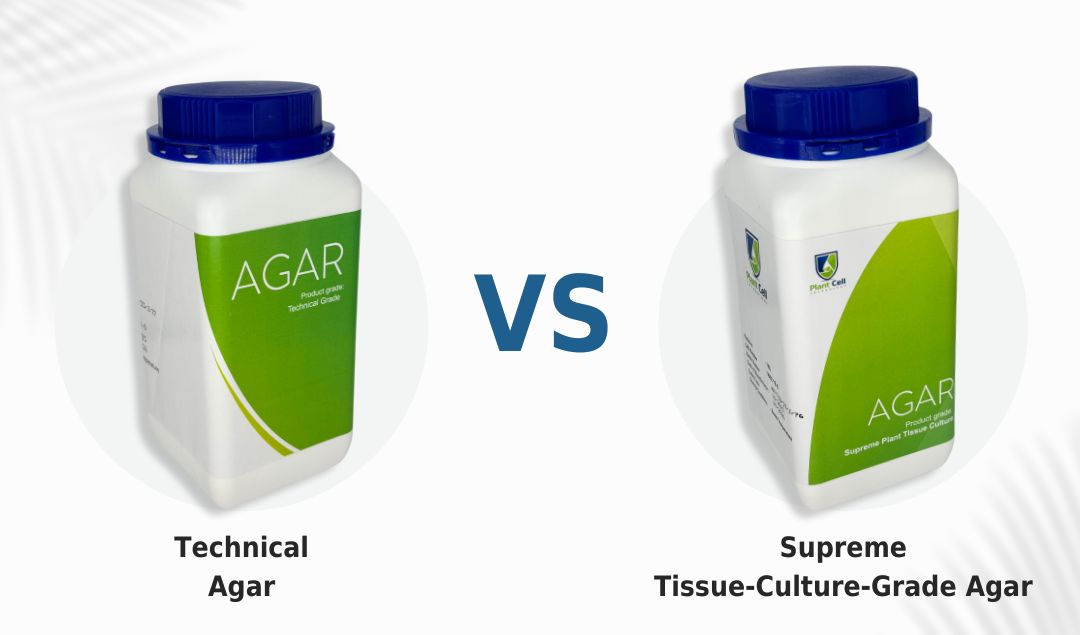
Application of Tissue Culture in Agriculture (Part-2)
As a content and community manager, I leverage my expertise in plant biotechnology, passion for tissue culture, and writing skills to create compelling articles, simplifying intricate scientific concepts, and address your inquiries. As a dedicated science communicator, I strive to spark curiosity and foster a love for science in my audience.


Introduction
Agriculture was the key development in human civilization, where farming made humans stay, occupy, and build at a place. It feeds a large population of people without any limitations. But, over the years, the growing population and shrinking space made it difficult to fulfill the demand for plant food.
Conventional techniques to grow plants have not been enough to feed the growing population and face environmental challenging issues. And, that’s why scientists introduced an alternative of tissue culturing that provided a key to all the agricultural challenges.
In the previous article, we’ve covered the advantages of tissue culture for all plants and specifically to agriculture as well. We also learned how some of the tissue culture techniques help in overcoming the agriculture challenges and what crops have been successfully grown using the advanced tissue culture technique.
This article is an extension to the previous article where we learn the applications of somaclonal variation and micropropagation in overcoming limitations of the conventional way of agriculture.
Application of different Tissue Culture Technique in Crop Improvement
Somaclonal Variation
The variation in plant cells is the result of several events including environmental, genetic, and epigenetic events. But tissue culture has also been an essential tool to induce somaclonal variation. It reflects the pre-existing cellular genetic differences or tissue culture-induced variability. Some of the well-known reasons for variation include several types of nuclear chromosomal re-arrangements and losses, gene amplification or de-amplification, non-reciprocal mitotic recombination events, transposable element activation, apparent point mutations, or re-activation of silent genes in multigene families, and alterations in maternally inherited characteristics.
Some of the profound changes introduced in crops included alterations in plant pigmentation, seed yield, plant vigor and size, leaf and flower morphology, essential oils, fruit solids, and disease tolerance or resistance in many crops, including wheat, triticale, rice, oats, maize, sugar cane, alfalfa, tobacco, tomato, potato, oilseed rape, and celery. These variations are obtained from somatic cells and gametic tissues.
Micropropagation
Propagation of plants
Micropropagation is a popular technique to propagate plants on a commercial scale. It has been popular for more than 30 years in labs and industries for the production of plants for different purposes. The technique of enhancing axillary bud breaking is the most commonly used technique for commercial micropropagation. The use of bioreactors for the production of somatic embryos is another approach being used in industrial areas.
But, there are also some limitations in using the technique like the cost of the labor and maintenance of asepsis condition for the tissue culture process. Further, vitrification, acclimatization, and contamination problems can cause a huge loss of money and time in the process, and the variations because of polyploidy, aneuploidy, and mutations result in loss of desirable economic traits in the tissue-cultured products.
Synthetic Seeds
A synthetic seed is a somatic embryo encapsulated inside a coating. It’s of different types which include:
- Somatic embryos encapsulated in a water gel.
- Dried and coated somatic embryos.
- Somatic embryos are suspended in a fluid carrier.
- Shoot buds encapsulated in a water gel.
Synthetic seed technology has been tried on crops like celery and lettuce. Synthetic seeds have several applications in agriculture, which include:
- It’s an improvement to the traditional method of propagation.
- It has been used for the maintenance of male-sterile lines.
- It has been used for the maintenance of parental lines for hybrid crop production.
- It has application in the preservation and multiplication of elite genotypes of woody plants that have long juvenile developmental phases.
Pathogen Eradication
Tissue culture is one of the most efficient techniques to get rid of pathogen/pests/microbes that attack plants. In some places, the technique has been used to increase the crop yield to 150%. Toe laminate viruses from plants, meristem tissue culture are the most popular technique.
The excision and culture of apical meristems (the meristem with one to three of the subjacent leaf primordia), coupled with thermo- or chemo-therapy, is a successful method to produce virus-free or pathogen-free material for micropropagation.
Germplasm Preservation
Germplasm preservation is an in vitro storage of plant genetics under slow-growth conditions (at low temperature and/or with growth-retarding compounds in the medium) or cryopreservation or as desiccated synthetic seed. It’s an alternative to seeds banks and field collections of clonally propagated crops.
But there is some limitation that comes with the technique. It includes:
- Lack of a common method suitable for all species and genotypes.
- High costs.
- The possibility of somaclonal variation
- Non-intentional cell-type selection in the stored material.
How Plant Cell Technology Is Helping Culturists Worldwide In Their Tissue Culture Application?
Plant Cell Technology is helping tissue culturists around the world by providing unique and world-class products and services that smoothen their process. It has MS media, plant growth regulators of all types, agar, gellan gum, culture vessels, and masks in its store to facilitate your processes.
And, that’s not it! Plant Cell Technology also offers consultation services to culturists of all sizes that helps to get instant solution to your tissue culture problems.
So, visit plantcelltechnology.com today and find out more about our product and services and how they help you to excel in your tissue culture processes.
Happy Culturing!!

Source: Giphy
Blog Categories
View by Level
Popular Blogs

6 Plant Tissue Culture Books to Keep Learning
Introduction Most of us are fans of books when it comes to learning a topic in detail and in a...
Read More
New Technical Agar Vs Supreme Agar
Introduction What’s the secret element that supports and holds plants in vitro? Not sure? It’s the solidifying agent. Solidifying agents...
Read MoreSubscribe to Our Newsletter







Join the conversation
Your email address will not be published. Required fields are marked